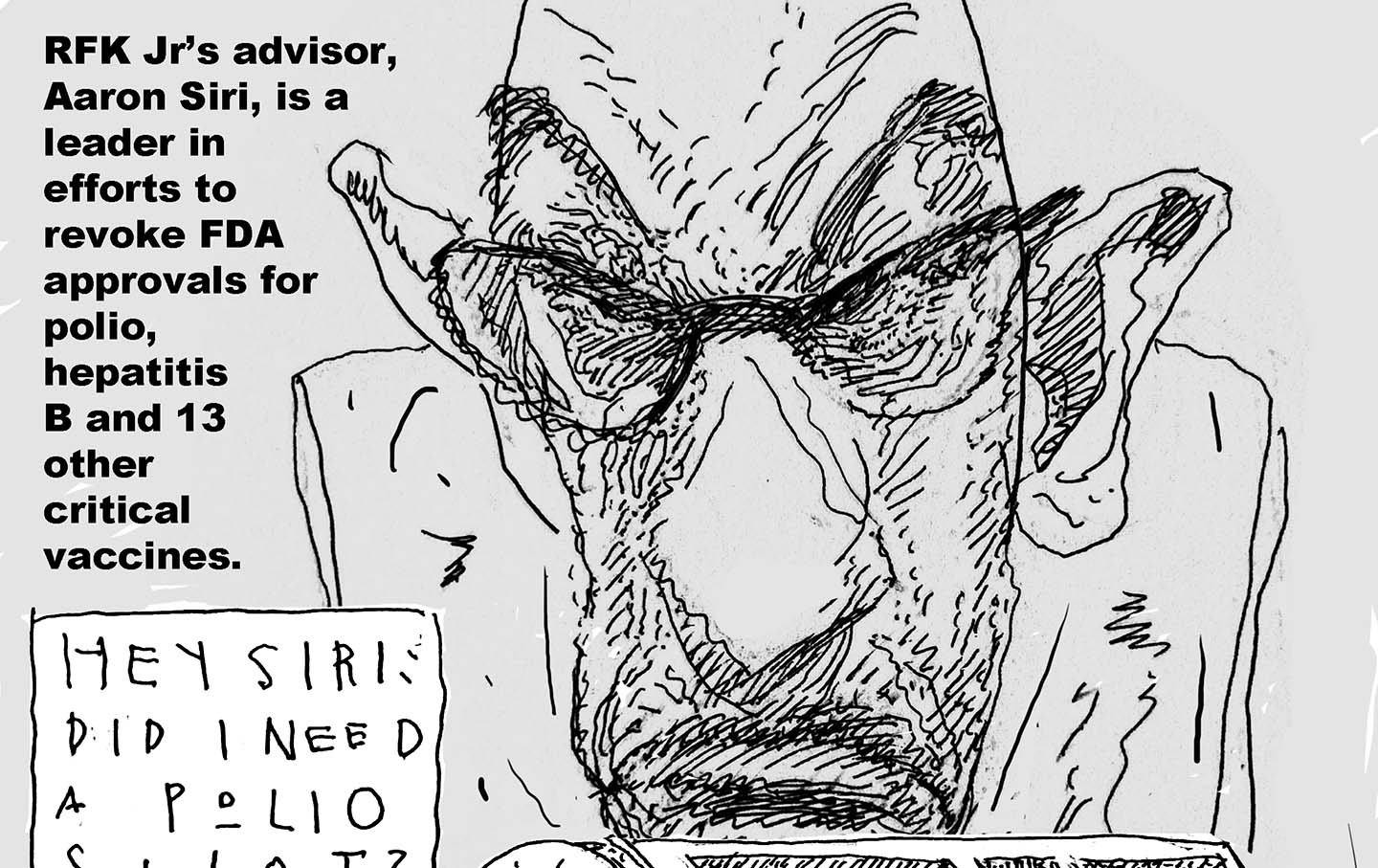Politics
/
November 19, 2024
If we need to deploy precise energy to dam Trump’s vicious agenda as soon as he takes management of the federal authorities, we should look to the states.
“To anybody who intends to come back take away the liberty, alternative, and dignity of Illinoisans, I’d remind you {that a} comfortable warrior remains to be a warrior. You come for my folks—you come by me.”
—Illinois Governor J.B. Pritzker
This comment at Governor Pritzker’s postelection press convention was the only heartening factor I’ve heard for the reason that debacle of November 5. Why?
Frederick Douglass famously asserted, “Energy concedes nothing and not using a demand, it by no means has and it by no means will.” This maxim is normally invoked to emphasize the necessity for tenacity, as within the United Farm Staff’ “¡Sí, se puede!” (“Sure, we are able to!”), or the motto of African revolutionaries within the Portuguese colonies, “A luta continua” (“the wrestle continues”), or the Wobbly martyr Joe Hill’s “Don’t mourn, set up.” However Douglass’s perception goes deeper. He understood that oppressive energy will concede nothing besides when confronted by a countervailing energy; that ethical righteousness and steadfast dedication avail little until the oppressed grasp the required instruments. The arc of justice doesn’t bend by itself; it’s bent—or not.
Actually, resistance to MAGA will brew, however we have to be strategic about the best way to make that resistance efficient. Progressives can not afford to be just like the proverbial French generals, at all times combating the final struggle. On this case, the “final struggle” is the mass Ladies’s Marches of January 2017, the biggest protests in US historical past—till the Black Lives Matter mobilizations in 2020! However in the present day, when Trump has focused dissenters and is itching to make use of federal and paramilitary forces in opposition to his opponents, these sorts of protests can’t be our solely approach to withstand.
The query now could be the best way to deploy precise energy to dam the vicious MAGA agenda as soon as it takes management of the federal authorities.
In my opinion, we should always take up some of the efficient types of resistance to unjust authority in US historical past—combating on the stage of particular person states and municipalities, the place governors and legislatures, mayors and metropolis councils act to guard their very own residents. Sure, I’m speaking about “states’ rights.”
Right here we face an issue of historic reminiscence. All through the twentieth century, the time period “states’ rights” meant the precise of a state to disfranchise, segregate, exclude from public providers, and deny fundamental bodily security to a few of its personal residents. That was the constitutional rationale underlying Jim Crow from Virginia to Texas, how Chicanos have been handled within the Southwest, and Native American peoples nearly all over the place. In 1948, South Carolina Governor Strom Thurmond led a walkout from the Democratic conference when the social gathering lastly endorsed civil rights. He convened a States’ Rights Democratic Occasion and swept 4 states (South Carolina, Mississippi, Louisiana, Alabama) as the one “Democrat” on the poll.
Present Subject
Eight years later, 101 Southern Members of Congress issued the Southern Manifesto, damning the Brown v. Board of Training resolution as a “clear abuse of judicial energy” that may “encroach upon the reserved rights of the states and the folks.” And Ronald Reagan sounded a loud dog-whistle on August 3, 1980, telling whites on the Neshoba County honest in Philadelphia, Mississippi—the place the KKK had murdered civil rights staff James Chaney, Andrew Goodman, and Michael Schwerner in 1964—that “I consider in states’ rights…. And if I do get the job I’m in search of, I’m going to dedicate myself to making an attempt to reorder these priorities and to revive to the states and native communities these features which correctly belong there.”
However there may be additionally a strong historical past of state and native resistance to injustice that we are able to draw on. As Kate Masur’s Till Justice Be Carried out: America’s First Civil Rights Motion, from the Revolution to Reconstruction and my The First Reconstruction: Black Politics in America from the Revolution to the Civil Conflict doc, within the half-century previous Lincoln’s election, governors, legislatures, cities, and cities in a lot of the North resisted the authorized claims of the slaveholding states, defending the rights of their residents in opposition to “the Slave Energy”—that means the South’s domination of nationwide politics. As this defiance unfold within the 1850s, it successfully nullified the federal authorities’s skill to implement the claims of slave-owners.
There’s a additional implication for our personal time, when Republicans controlling pink states search to abrogate the citizenship of these deemed “different,’”whether or not immigrants, trans individuals, or anybody not white. Within the antebellum period, “states’ rights” meant that when a state granted citizenship to African People by enfranchising them if male, authorizing them to testify in opposition to whites in courtroom, issuing passports to them (as Massachusetts did within the 1850s), and defending them in opposition to slave-catchers by way of “private liberty” legal guidelines, that state’s governor, legislature, and courts have been intentionally confronting these states that refused citizenship to Black folks.
Up till 1850, the central situation was the 1793 Fugitive Slave Act, which required states to adjust to the Structure’s specification that any “individual held to Service or Labour in a single State,” if escaping to a different, have to be returned. Within the 1810s, legislators above the Mason-Dixon responded viscerally to well-organized kidnapping rings within the Chesapeake, which repeatedly kidnapped individuals of colour (particularly kids). In 1820, Pennsylvania handed the primary “private liberty” regulation, additional strengthened by an 1826 act making it extraordinarily troublesome for a slave-owner to to reclaim his human chattels.
By the 1830s, an anti-slavery constituency fashioned amongst Northern Whigs led by the congressman (and former president) John Quincy Adams. It turned common to defy the South by refusing to extradite fugitives or individuals charged with aiding escapes. A sample was set in 1837–38 when Whig after which Democratic governors in Maine denied Georgia’s demand for the rendition of an enslaved stowaway and the captain of the ship on which he escaped.
Essentially the most well-known occasion of this de facto nullification was the “Virginia Controversy” of 1839–42, throughout which New York Governor William H. Seward resisted 5 Virginia governors demanding the extradition of three Black seamen, New York residents, who helped an enslaved individual to flee from Norfolk. Seward’s rationale right here bears particular discover for our time. He wrote one governor that extradition was legitimate in his state provided that the supposed crime was “treasonable, felonious or prison,” and it was “not a felony nor against the law” in New York to assist somebody escape from bondage, including that “it’s absurd on this State to talk of property in immortal beings, and consequently of stealing them, as it will be to discourse of a division of property within the frequent environment.” Not solely that. In 1840, he signed a invoice mandating jury trials for alleged fugitives from slavery, and in 1841 accredited laws revoking the “9 months regulation” which permitted slaveholders to convey their chattels into the state.
Seward and his Ohio ally (later governor) Salmon P. Chase took the doctrine of a state’s proper to ensure liberty to the Supreme Court docket in 1842 and misplaced in Prigg v. Pennsylvania, when the courtroom voided the conviction of knowledgeable slavecatcher. However the Prigg resolution additionally eliminated the requirement that state authorities cooperate in recapture. As a consequence, particular person states and localities continued to show a blind eye to “rescues” of captured fugitives, typically by free Black folks.
Issues got here to a head after passage of the Fugitive Slave Act of 1850. That draconian laws repealed habeas corpus for all individuals of African descent within the “free” states. The response throughout a lot of the North was violent outrage. In 1852, the Ohio congressman Joshua Giddings instructed a mass assembly, “I’d sooner see each slave holder of the nation hanged then to witness the subjugation of northern freemen to such a humiliating situation. If this regulation continues to be enforced, Civil Conflict is inevitable.”
Spectacular rescues ensued, from Christiana simply above Pennsylvania’s border with Maryland (the place a slaveholder was killed) to Syracuse’s “Jerry Rescue” and a number of confrontations in Boston. Highly effective political figures like Massachusetts Senator Charles Sumner and Pennsylvania Consultant Thaddeus Stevens defended the lads arrested throughout these actions, whom juries proved singularly unwilling to convict.
Standard
“swipe left beneath to view extra authors”Swipe →
Starting in 1854, as the brand new Republican Occasion coalesced, eight Northern states handed stringent private liberty legal guidelines. The decision by Vermont’s Basic Meeting in 1858, following the Dred Scott v. Sandford resolution, offers their taste: “That each one legal guidelines of Congress which acknowledge the precise of property in man, or deprive any individual of liberty with out due means of regulation and a jury trial…are unconstitutional, void, and of no impact…. That these extra-judicial opinions of the Supreme Court docket of the USA are a harmful usurpation of energy, and haven’t any binding authority upon Vermont, or the folks of the USA.”
Dred Scott was the ultimate straw, because it assured slaveholders the precise to take their human property wherever in the USA and erased any risk of Black citizenship. The Wisconsin legislature nullified it, and Maine’s Supreme Judicial Court docket adopted go well with when queried by the legislature whether or not Black Mainers might nonetheless vote as that they had for the reason that state’s founding. It was a brief route from there to Lincoln’s election in November 1860 after which secession, when 4 of the slaveholding states cited the refusal to return fugitives as a central motive for leaving the Union. They’d been met with energy, and retreated.
What’s the lesson of this historical past from our seemingly distant previous? Constitutional students will possible declare it irrelevant, given more moderen precedents, and nobody can think about that this Supreme Court docket—any greater than the courtroom led by Chief Justice Roger Taney that issued Dred Scott—will help states and cities that defy Trump. This isn’t a authorized technique, in any case—not more than resistance by New York or Ohio to the slave energy’s domination was.
It’s as political as could possibly be: placing up a wall in opposition to oppression, securing a border for freedom, creating sanctuaries for the oppressed, refusing to cooperate with a authorities that validates cruelty by way of mass deportations of the undocumented and persecution of anybody concerned in abortion or gender-affirming care.
That was the implication of what Governor Pritzker stated: Now we should broaden the zone of freedom state by state—by any means mandatory. The combating phrases of Vermont’s legislature in 1858 appear recent: “Each time the federal government or judiciary of the USA refuses or neglects to guard the residents of every State of their lives and liberty, when in one other State or territory, it turns into the responsibility of the sovereign and unbiased States of this Union to guard their very own residents, at no matter hazard or value.”
We can not again down
We now confront a second Trump presidency.
There’s not a second to lose. We should harness our fears, our grief, and sure, our anger, to withstand the harmful insurance policies Donald Trump will unleash on our nation. We rededicate ourselves to our position as journalists and writers of precept and conscience.
In the present day, we additionally metal ourselves for the combat forward. It’ll demand a fearless spirit, an knowledgeable thoughts, clever evaluation, and humane resistance. We face the enactment of Undertaking 2025, a far-right supreme courtroom, political authoritarianism, rising inequality and document homelessness, a looming local weather disaster, and conflicts overseas. The Nation will expose and suggest, nurture investigative reporting, and stand collectively as a group to maintain hope and risk alive. The Nation’s work will proceed—because it has in good and not-so-good occasions—to develop various concepts and visions, to deepen our mission of truth-telling and deep reporting, and to additional solidarity in a nation divided.
Armed with a outstanding 160 years of daring, unbiased journalism, our mandate in the present day stays the identical as when abolitionists first based The Nation—to uphold the ideas of democracy and freedom, function a beacon by the darkest days of resistance, and to ascertain and wrestle for a brighter future.
The day is darkish, the forces arrayed are tenacious, however because the late Nation editorial board member Toni Morrison wrote “No! That is exactly the time when artists go to work. There isn’t a time for despair, no place for self-pity, no want for silence, no room for worry. We communicate, we write, we do language. That’s how civilizations heal.”
I urge you to face with The Nation and donate in the present day.
Onwards,
Katrina vanden Heuvel
Editorial Director and Writer, The Nation
Extra from The Nation
It’s simpler accountable activists, however way more highly effective forces have led Democrats to neglect the true crises going through People.
Waleed Shahid
His group of cronies contains institution hawks and cranky outsiders who usually tend to ship international anarchy than world peace.
Jeet Heer
California and the opposite highly effective Democrat-led states would be the first line of protection beneath Trump’s new administration.
Sasha Abramsky
The as soon as and future president tried to oust Thune from the Senate in 2022. Thune gained one other time period. Now, he’s the Senate majority chief.
John Nichols


